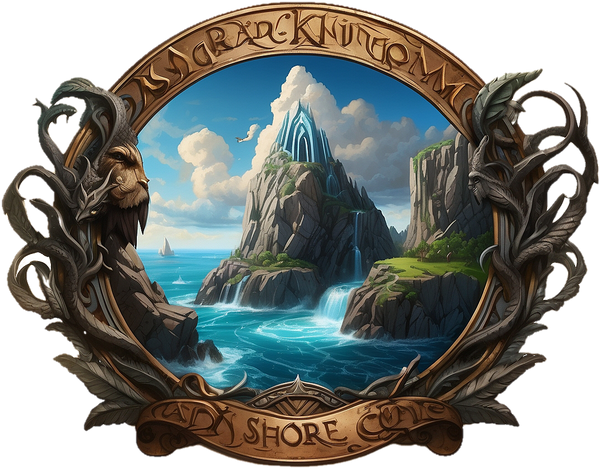What if your deepest truths came not from you—but from two shadowed wings circling high above the world?
This was the reality for Odin, the Allfather. In the stillness of Asgard, he did not rule by sheer strength alone. He ruled with the whispers of two ever-roaming companions: Hugin and Munin—thought and memory, flying across the realms, bringing back the essence of the world.
But why ravens? Why two? And why did Odin fear the loss of one more than the other?
Messengers of the Nine Realms
In Norse mythology, Odin’s two ravens are no ordinary birds. Each morning, they soar from his shoulders into the nine realms of existence—Midgard, Asgard, Helheim, and beyond. By dusk, they return, alight upon his throne, and whisper all they’ve seen.
Hugin and Munin are not pets. They are extensions of Odin’s consciousness. They see what he cannot. They know what he has yet to learn. They are a bridge between realms and between mind and soul.
In the Prose Edda, Snorri Sturluson names them plainly:
“Hugin and Munin fly every day over the whole world. I fear for Hugin that he will not come back. Yet more do I fear for Munin.”
A curious line. Why fear their loss? They are only thought and memory. But perhaps that’s the point.
Hugin and Munin: Meaning Beyond Myth
Hugin (from Old Norse hugr) represents thought—swift, questioning, reaching outward.
Munin (minni) represents memory—deep, rooted, holding onto what was.
One flies forward. The other circles behind.
To the Vikings, this duality had weight. In battle, thought brought survival: strategy, anticipation, the reading of men’s eyes. But memory brought identity: stories of kin, vengeance sworn, wisdom passed down by firelight. A warrior without thought is reckless. But a warrior without memory? He’s already lost.
It’s no surprise that Odin, who sacrificed his eye for wisdom, would bind himself to both—but fear the loss of memory more.
Without thought, you might stumble.
Without memory, you forget who you are.
Why Odin Feared Losing Munin More
Odin’s concern for Munin strikes a deeper chord.
Memory isn’t just a mental function; it’s a mythic pillar. Munin contains the weight of the past, the voices of ancestors, and the lessons etched in blood and frost.
If Odin lost Hugin, he would be blind to what was coming.
If he lost Munin, he would be blind to where he came from.
And in Norse cosmology, where you come from defines your strength. Lineage mattered. Oaths mattered. Even gods were shaped by fate, bound in part by what had already been.
Just as Yggdrasil connects all realms, Munin connects the self—past to present, wound to wisdom.
A Mirror for Us All
Hugin and Munin are not just mythological curiosities. They are mirrors, reflections of what we need to thrive in a chaotic world.
We need Hugin: the sharpness of thought, planning, curiosity, and intellect.
We need Munin: the grounding of memory, reflection, self-awareness, and experience.
In a time where noise overwhelms and the future races toward us, we often cling to thought. Strategy. Planning. Constant motion.
But it’s the memory that gives that movement meaning. Without memory, thought becomes a sprint with no direction.
There’s a reason both ravens must return.
There’s a reason Odin sat still and listened.
The Raven’s Path Within
Perhaps the ravens were never only his.
Perhaps we each carry something like them inside us.
A voice urging us to consider what comes next.
A whisper reminding us what came before.
When we ignore one, we become unbalanced.
When we listen to both, we act with wisdom.
So the next time you sit in silence, whether before a storm, a decision, or a moment of reflection, ask yourself:
Which raven speaks to me now? Thought… or memory?
And more importantly—
Which one am I ignoring?
